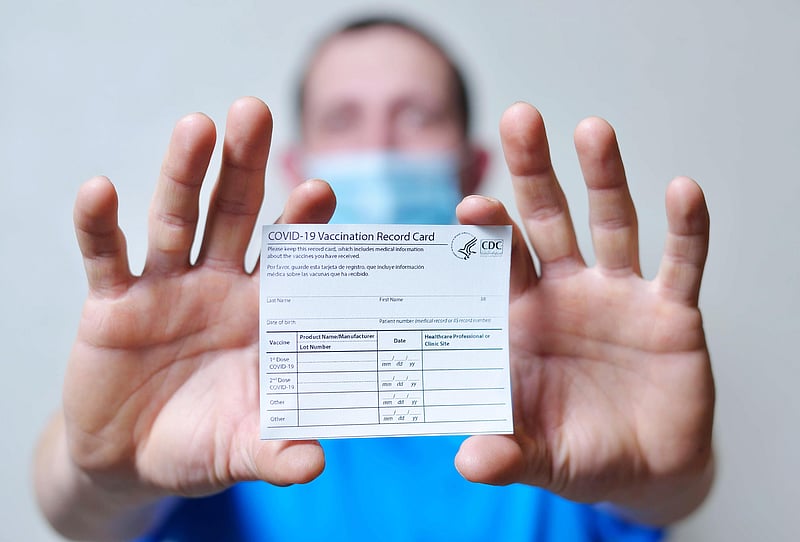Get Healthy!

- Cara Murez
- Posted May 24, 2022
Cancer Patients Have Even Greater Need for COVID Boosters: Study
Cancer patients continue to face more risk from COVID-19, even if they've been vaccinated.
Although vaccination is effective for most people who have cancer (even though they're immunocompromised by the disease and their cancer treatments), its effectiveness wanes more rapidly in this group, by three to six months compared to the general population, new research shows.
The U.K. Coronavirus Cancer Evaluation Project also found that vaccine effectiveness is much lower in people with the blood cancers leukemia or lymphoma, those with a recent cancer diagnosis and those who have received anti-cancer treatment within the last year.
"We know that people with cancer have a higher risk of severe COVID-19 disease and that the immune response in cancer patients following COVID-19 vaccination is lower. However, no study has looked at vaccine effectiveness and its waning in cancer patients at a population level," said study leader Dr. Lennard Lee, of the University of Oxford oncology department.
"We have undertaken the largest real-world health system evaluation of COVID-19 in cancer patients globally," he added in a university news release.
Getting a COVID-19 booster was especially important for cancer patients, the study authors found.
According to co-author Peter Johnson, a professor of medical oncology at the University of Southampton, "This study shows that for some people with cancer, COVID-19 vaccination may give less effective and shorter-lasting protection. This highlights the importance of vaccination booster programs and rapid access to COVID-19 treatments for people undergoing cancer treatments."
For the study, the researchers analyzed more than 377,000 individuals with active or recent cancer who had received two doses of the COVID-19 vaccine and undergone a COVID PCR test in England.
The investigators then compared the numbers of breakthrough COVID-19 infections and COVID-associated hospitalizations and deaths in this group with those from a control group of individuals without active or recent cancer.
Overall vaccine effectiveness against COVID-19 infection was nearly 70% for people in the general population who had had at least two doses of vaccine during the study period, according to the report. Comparatively, it was a little less than 66% in the cancer patients.
After three to six months, the effectiveness dropped to about 61% in the control group and 47% in the cancer group, the findings showed.
Vaccine protection was higher against hospitalization (about 83%) and death (about 93%) in the cancer group than against infection, but also waned after a few months.
The type of cancer treatment also mattered. In cancer patients treated in the last 12 months with chemotherapy or radiotherapy, vaccine effectiveness was lower and waned more three to six months later than in cancer patients who did not receive these treatments or were treated more than a year earlier.
The findings were published online May 23 in The Lancet Oncology.
More information
The U.S. National Cancer Institute has more on COVID-19 and cancer.
SOURCE: University of Oxford, news release, May 23, 2022

